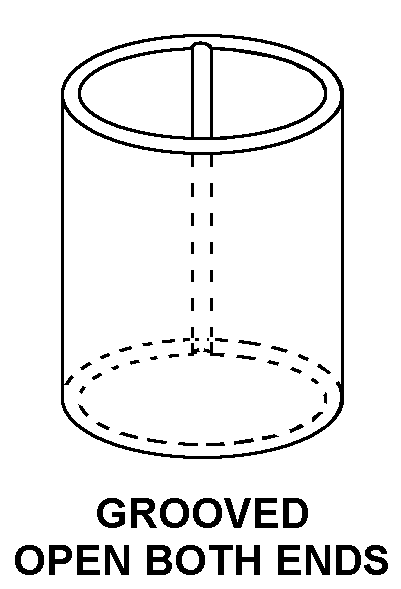3120008075846
Price Quote Get an up to date pricing and availability quote for this product. Order online or over the phone.
Quality Commitment
Serving our customers with quality and safety first.
- AS9120 Certified
- Audited supply chain
- ITAR Registered
- DDTC Registered
- HAZMAT Certified
- Customer service objectives
- Every product 100% inspected

3120-00-807-5846 Specification Set by the OEM (see RNCC code 3)
0.4320in. and 0.4420in. ⁓29/64"
0.6580in. and 0.6590in.
0.3960in. and 0.4160in.
0.8650in. and 0.8850in.
0.1220in. and 0.1270in.
grooved open both ends
square outside left corner
150.0 microinches
1 internal
flanged endcounterbored to 0.531 in. dia by 0.075 in. to 0.080 in. deep, flanged end is grooved 0.031 in. w by 0.045 in. to 0.055 in. deep
copper alloy
22c solid, external flange one end
Cross Reference Parts Part numbers that meet the specification outlined on this page and set by the OEM
Identification Item Identification Guide (IIG) and Item Name Code (INC)

Definition Definition of approved item name (AIN): "BEARING,SLEEVE"
A tubular shaped item with or without flange(s) designed to reduce friction and carry a kinetic load on the surface(s) parallel to the axis of the bore. it must have a visible or detectable means of lubrication or be self-lubricated. the over all length must exceed 25 percent of the outside diameter or the shortest distance between peripheral flats of the body, except for straight tubular (without flange or shoulder) items having a bearing surface(s) parallel to the axis of the bore only. includes items which are divided into two or more segments which include 180 degrees (3.141 radians) or less of the bearing periphery. see also bushing, sleeve; spacer, sleeve; and washer (as modified). excludes pin, hollow.
3120-00-807-5846 Material Hazmat, Precious Metals, Criticality, Enviroment, and ESD
Indicates there is no data in the hmirs and the nsn is in a fsc not generally suspected of containing hazardous materials.
Precious metal content is unknown
The item does not have a nuclear hardened feature or any other critical feature such as tolerance, fit restriction or application.
Identification Codes
HMIC: Hazardous Material Indicator Code. A one position code that identifies a hazardous item.
PMIC: Precious Metal Indicator Code. A one position code which identifies items that have precious metals as part of their content. precious metals are those metals generally considered to be uncommon, highly valuable, and relatively superior in certain properties such as resistance to corrosion and electrical conductivity.
ESD: Electrostatic Discharge. Indicates if an item is susceptible to electrostatic discharge or electromagnetic interference damage. electrostatic discharge damage occurs when an accumulation of static electricity generated by the relative motion or separation of materials is released to another item by direct contact. electromagnetic interference damage occurs when an item comes into proximity with an electrostatic or magnetic field.
ENAC: Enviromental Attribute Code. Identifies items with environmentally preferred characteristics.
CRITL: Criticality Indicator Code. Indicates an item is technically critical by tolerance, fit, application, nuclear hardness properties, or other characteristics.
Material Management Material categorization and source of supply
Naval inventory control point philadelphia, pennsylvania 19111-5098
Turbo prop engines (t58)
Material Codes
SOS: Source of Supply. A three position code or routing identifier code (ric), which identifies the source of supply activity.
SMIC: Special Material Indicator Code. A two position code, which categorizes material on the basis of requirements for source or quality control, technical design or configuration control, procurement, stocking and issue control, special receipt, inspection, testing, storage, or handling.
MMAC: Material Management Aggregation Code. A two position code that identifies an item of supply to be managed by a specific activity manager.
MCC: Material Echelon Code. A two position code employed by the marine corps in classifying items into categories by materiel category and procurement echelon. the alphanumeric management code is in the first position and identifies the materiel category
IMC: Denotes wether items shall be subjected to integrated management under the defense supply agency or retained by the individual military service or other department of defense components for their management. Assigned by th activity responsible for item management coding.






